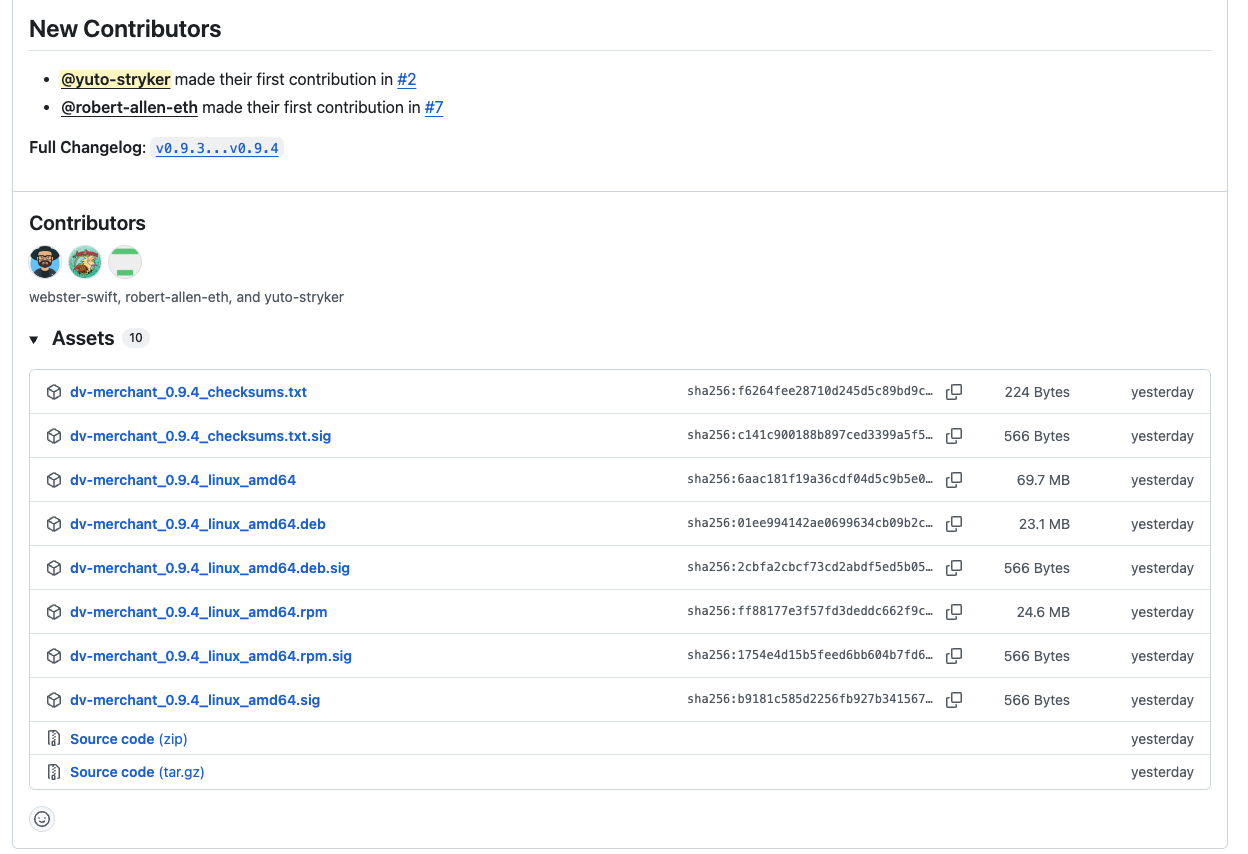Verification of Packages and Installed Software
Verifying the Authenticity of Our Packages with GPG
All our .deb and .rpm packages and their checksums are cryptographically signed using GPG keys. This ensures that the packages you download were created by us and have not been altered or corrupted by third parties. You can easily verify the authenticity of a package using our public key.
All project source code, corresponding compiled executables, as well as .deb and .rpm packages are published in releases on github.com. Their corresponding signatures are located there as well, in .sig files.
Example: https://github.com/dv-net/dv-merchant/releases/tag/v0.9.4

Step 1: Import Our Public GPG Key
First, you need to import our public key into your keychain. This only needs to be done once. Our key is published at https://dv.net/gpg.pub
Save the public key to your server:
curl https://dv.net/gpg.pub -o dv-net.ascThen, import it into your keychain:
gpg --import dv-net.ascStep 2: Verify the Package Signature
After importing the key, you can verify the signature of any package you have downloaded.
For .deb packages (Debian/Ubuntu)
To verify a .deb package, use the dpkg-sig command. If it is not installed, you can install it with sudo apt-get install dpkg-sig.
dpkg-sig --verify package_name.debIf the signature is valid, you will see a GOODSIG status from a trusted key in the output.
For .rpm packages (Fedora/CentOS/RHEL)
To verify an .rpm package, use the rpm command.
rpm --checksig package_name.rpmIf the signature is correct, the command's output will show that all checks (including gpg) have passed successfully (OK).
Following these simple steps will help you ensure the integrity and authenticity of our software packages.